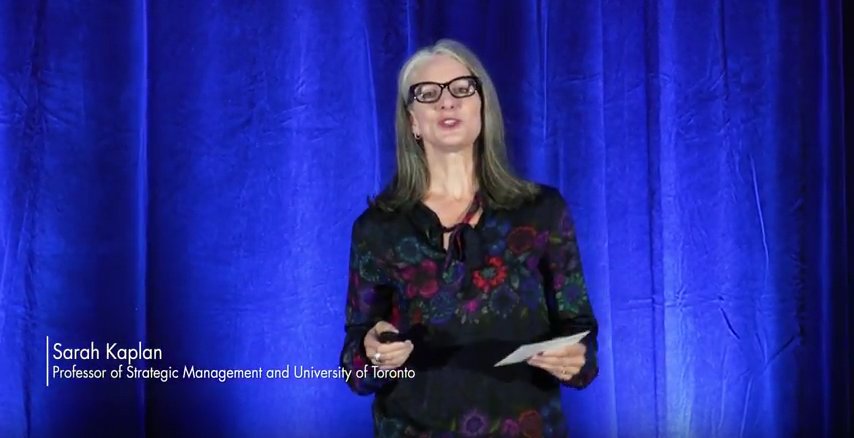As part of our Rotman Short Talks series, hear from Professor Sarah Kaplan about why progress towards gender equality is slow. In it, she focuses on the risks of backlash and the discomfort associated with diversity. She argues that the myth of meritocracy is getting in the way of progress. And, she highlights that getting comfortable with discomfort is the only way to move forward.
Sarah Kaplan is Professor of Strategic Management at the Rotman School. She is author of the New York Times business bestseller, Creative Destruction, challenging the notion of sustainable competitive advantage and the myth of excellence, and the recently released Survive and Thrive: Winning Against Strategic Threats to Your Business. The research shows that long-established companies, instead of maintaining excellence, almost always under-perform the market over time. Ironically, the very culture and meticulously maintained systems that fuel the good times cause companies to stall out. Her work has focused on generating insights that can help companies avoid this cultural lock-in and innovate at the pace and scale of the market.
Her current research continues this exploration of how organizations participate in and respond to the emergence of new fields and technologies. Her studies examine the biotechnology, fiber optics, financial services, nanotechnology and most recently, the field emerging at the nexus of gender and finance. Her interest in gender lens investing is in understanding how whole new ecosystems can be built. She recently authored “Gender Equality as an Innovation Challenge” in the Rotman Magazine (2017), “The Risky Rhetoric of Female Risk Aversion” in the Stanford Social Innovation Review (2016), “Meritocracy: From Myth to Reality” in the Rotman Magazine (2015), “The Rise of Gender Capitalism,” in the Stanford Social Innovation Review (2014).
Formerly a professor at the Wharton School, University of Pennsylvania (where she remains a Senior Fellow), and a consultant and innovation specialist for nearly a decade at McKinsey & Company in New York, she completed her doctoral research at the Sloan School of Management at the Massachusetts Institute of Technology (MIT).




